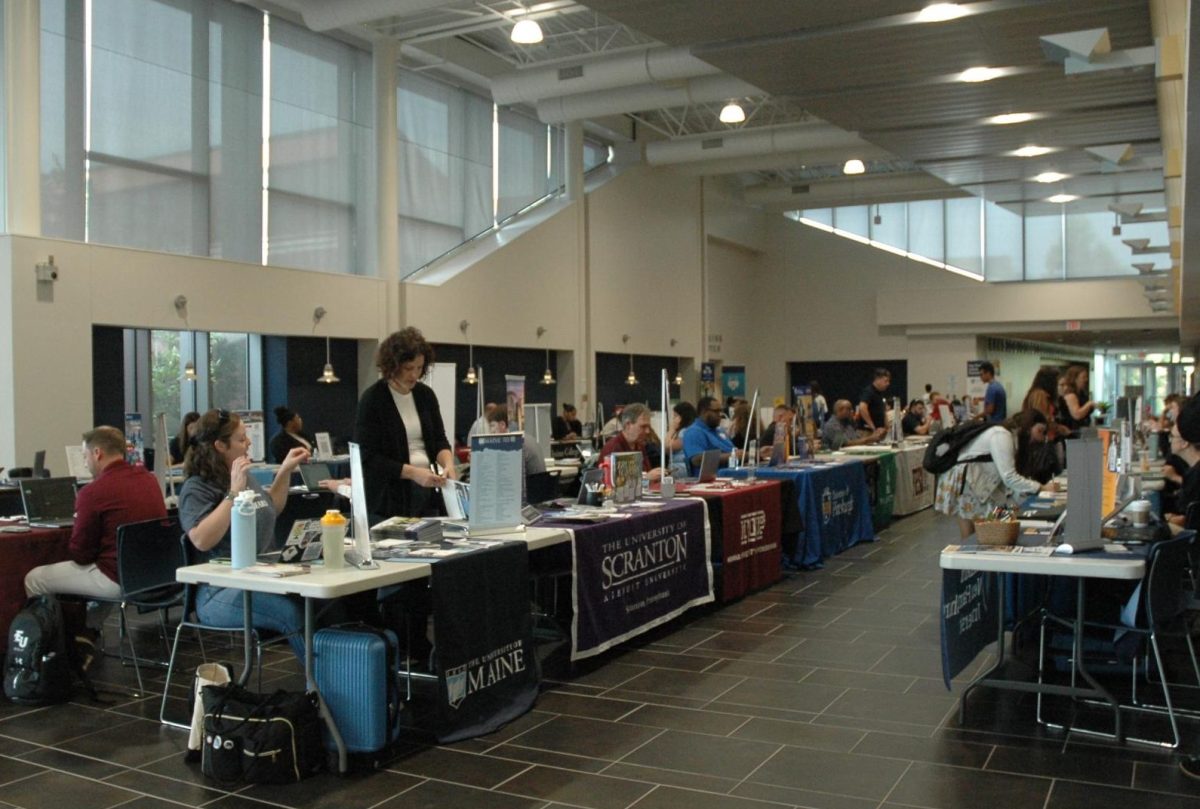Students and Colleges Connected at Bucks College Fair on Sept. 23. Those in attendance had the opportunity of meeting representatives from local and national college institutions.
“I’m here to see who is in contact with Bucks,” says one student, Nina Evan.
Schools affiliated with Bucks range from Temple to La Salle and beyond, including nontraditional options.
The University of Pennsylvania’s online liberal arts college Penn LPS, markets themselves towards those with jobs that seek “an Ivy League experience.” This is not to say that people without professional careers cannot enroll within the program, which is far the truth.
Certain majors offered by Penn LPS are referred to as concentrations and involve the creative arts such as writing and literature while others can involve data analytics and business, organizational studies. According to the school’s Recruitment Specialist Akilah Abdul-Rahman, “Individualized studies are the most popular concentration that we offer.”
Most colleges and universities incorporate specialized schools within them to meet students’ needs.
For example, La Salle is divided into three colleges: the School of Business, School of Arts & Sciences, and School of Nursing & Health Sciences. When combined, the total number of programs offered exceed 40.
“I feel like it’s a good opportunity to see all the other colleges because Bucks is a two-year degree,” says Aden Brody, a first-year accounting major.
Penn State Abington offers 26 undergraduate majors, says Director of Transfer Admissions Ashley Anthony.
Devin Herbert, a biology major seeking a potential career as a physician assistant states, “I’m here to see which school matches my career goals.”
Private liberal arts school Arcadia University’s most popular programs involve biology, business, and psychology.
“I think it’s a good opportunity to see the different options of colleges to attend after Bucks”, says Antonio Morris, a Business Administration major.
The contrast between public and private colleges and universities is one involving finance.
According to Temple University’s Associate Director of Recruitment, Laiara Powell, funding at private colleges comes from tuition, endowment, and donation (especially from alumni), while private colleges receive federal funding as well as funding from the state and local level.
While public colleges are not necessarily free, tuition is considerably lower compared to their privatized counterparts.
This is not to delegitimize private institutions, however. For example, representing Columbia GS is Catherine Sun of Columbia’s Office of Admissions, who states “tuition will be the same for students in-and-out of [New York] state,” with financial aid both being merit as well as need-based; depending on the CSS profile submission, a FASFA-like process through College Board.
Overall, Columbia University themselves have four undergraduate campuses.


